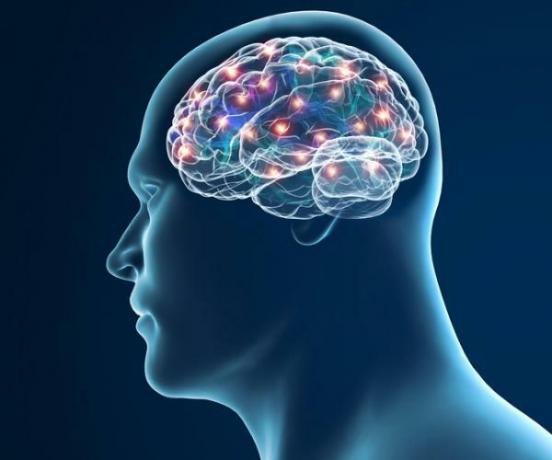
Schizoaffective disorder refers to a mental health disorder characterized by the manifestation combination of psychotic symptoms, such as delusions or hallucinations, and symptoms of mood disorders, such as depression or mania. His condition can cause the affected person to have serious problems in their occupational and academic performance and in interacting with others. Presenting symptoms may be of greater or lesser intensity for periods of time and may include delusions, hallucinations, sadness, changes in mood, appetite, neglect of physical appearance, concentration problems, communication problems, isolation, illogical speech, sleep disorders, among others. These patients require medical treatment that combines drug therapy with psychotherapy in order to reduce symptoms and be able to manage emotions and behaviors. In this Psychology-Online article, we explain in detail what they are the causes, symptoms, treatment, and prognosis of schizoaffective disorder.
Index
- What is schizoaffective disorder
- Schizoaffective disorder: causes
- When and who suffers from schizoaffective disorder
- Schizoaffective disorder: symptoms
- Schizoaffective disorder: drug treatment
- Schizoaffective treatment: psychological treatment
- Schizoaffective treatment: prognosis
What is schizoaffective disorder.
The schizoaffective disorder can be defined as a mental disorder in which people who present it suffer from a combination of symptoms associated with schizophrenia, such as hallucinations or delusions, and symptoms associated with a mood or bipolar disorder (severe depressive or manic symptoms).
It is a mental health condition that would be among the diagnosis of Bipolar disorder and schizophrenia, since the symptoms of both disorders are usually present. However, its evolution may be different in each individual and those who suffer it and do not receive treatment, may have problems in the social, school, and work environment. In addition to this, they also tend to have perception problems, psychological processes of an emotional nature and complications to take care of themselves.
Schizoaffective disorder: causes.
The causes of schizoaffective disorder have not been identified, but specialists have pointed out that there are a series of factors that in combination can favor its development and appearance. Between these risk factor's, are those that we detail below:
- Genetic factors: those that people who have direct relatives with schizophrenia, bipolarity or disorder schizoaffective are more likely to suffer from this disorder in their life than those who do not they have them.
- Physical factors: Variations in the chemistry and structure of the brain have been observed in people suffering from this mental disorder, such as, for example, having a smaller brain volume. It has also been noted that those with developmental delays are at higher risk of developing this disease.
- Environmental factors: It has been shown that being exposed to toxins or viruses while in the mother's womb can increase the risk of developing this disorder throughout life. In addition to this, brain damage that can occur due to complications in childbirth or birth situations of abuse and abandonment can also be decisive in the appearance of this disease of mental health.
Other possible risk factors for schizoaffective disorder include the following:
- Having suffered from a mental illness before.
- Having been through a traumatic experience.
- Consumption and abuse of drugs and / or alcohol.
- Having experienced very stressful episodes.

When it appears and who suffers from schizoaffective disorder.
Schizoaffective disorder can develop at any stage of life, although it has been noted that it occurs more frequently in the early adult stage. Depending on the age of the affected person, it has also been observed that one type of schizoaffective disorder or another manifests, since in adults Young people usually present with schizoaffective disorder of the bipolar type, while in older women the type of bipolar is more frequent. depressant.
Regarding its prevalence in the population, we can say that it affects a third of people who have schizophrenia and that it occurs more frequently in women than in men.
Schizoaffective disorder: symptoms.
The signs and symptoms of schizoaffective disorder vary considerably from one person to another and its evolution is characterized by periods of intense and severe symptoms with other periods of improvement and minor symptoms intensity. In general, these are people who have psychotic symptoms and symptoms of bipolar or depressive-type disorder at the same time. Next, we show what the symptoms of schizoaffective disorder that affected people present at a physical, behavioral, cognitive and psychosocial level:
Physical symptoms
- Sleep disorders.
- Changes in eating habits.
- Weight gain or loss.
- Lack of hygiene.
- Changes in physical appearance and lack of concern for one's image.
Behavioral symptoms
- Deficiencies in occupational, social and academic performance.
- Difficult or no communication: such as not responding to what has been asked or responding partially.
- Disorderly behaviors.
- Isolation.
- Alternating fast and slow movements.
- Attempts at self-harm.
- Suicidal attempts.
- Lack of will and mobility.
Cognitive symptoms
- Delusions
- Hallucinations: such as visualizing things that do not exist or hearing voices.
- Depressive symptoms such as deep sadness, feeling empty or worthless.
- Fast, racing, and messy thinking.
- Difficult to focus.
- Perception problems.
- Paranoia.
- Memory problems.
Psychosocial symptoms
- Manic episodes.
- Depressive episodes
- High and excessive anxiety.
- Very high or excessively low self-esteem alternation.

Schizoaffective disorder: drug treatment.
The treatment of schizoaffective disorder should be established based on the type of this disease that occurs, as well as the severity of the symptoms manifested. In general, patients tend to respond well to a clinical intervention in which there is a combination of medication with psychotherapy to try to reduce the symptoms and be able to get to control their emotions and positively manage their social and behavior behaviors self-care.
The pharmacological treatment of schizoaffective disorder it can encompass the following:
- Antidepressants: drugs that help the affected person to reduce and manage deep sadness, anguish, insomnia and difficulties in concentrating.
- Antipsychotics: as is the case with the atypical antipsychotic paliperidone, which modifies some natural substances in the brain and reduces the symptoms of schizophrenia.
- Eutimizers: drugs that help stabilize mood and reduce euphoric episodes and depressive episodes.
Schizoaffective treatment: psychological treatment.
As we have already commented, a combination of pharmacological treatment with psychotherapy should be done, and in this case the most appropriate psychological treatment would be cognitive behavioral therapy. Its objectives are the following:
- Help the affected person to identify all depressive or manic symptoms in order to work on them.
- Help you clarify how you construct your reality and how you give meaning to your life experiences based on your cognitive errors and your personal history.
- Improve your communication and social interaction.
- Develop new personal and social skills.

Schizoaffective treatment: prognosis.
People with schizoaffective disorder do better than, for example, those with schizophrenia. However, its prognosis is more negative than that of other mood disorders due to the perception problems that develop. In addition, it is important to note that the more psychotic symptoms manifest, the more chronic this disease is. Often times, a prolonged pharmacological and psychological treatment to control symptoms and evolution can vary greatly from one person to another.
This article is merely informative, in Psychology-Online we do not have the power to make a diagnosis or recommend a treatment. We invite you to go to a psychologist to treat your particular case.
If you want to read more articles similar to Schizoaffective disorder: causes, symptoms, treatment and prognosis, we recommend that you enter our category of Clinical psychology.
Schizoaffective disorder: causes, symptoms, treatment and prognosis


